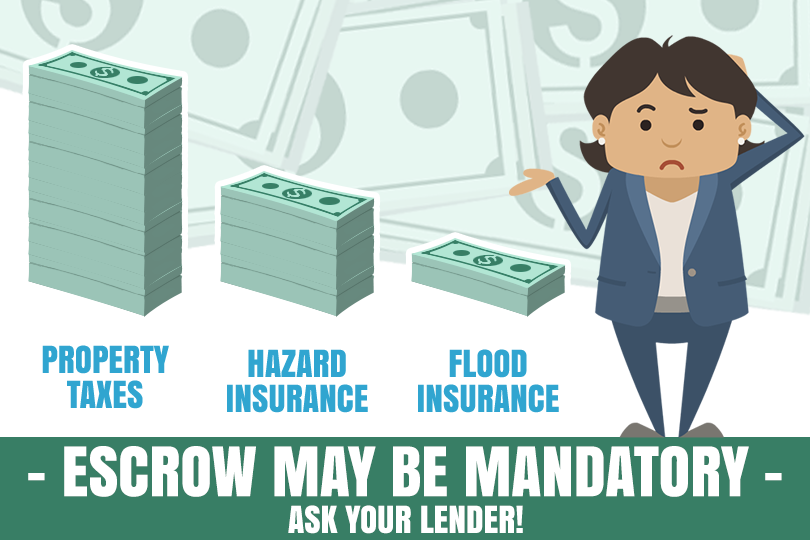Why Use an Escrow Account for an FHA Mortgage?

Escrow May Be Mandatory
Your lender may require the use of an escrow account, especially if you are applying for an FHA 203(k) Rehabilitation Loan or an FHA One-Time Close Construction loan. These types of mortgages require payments to contractors building or renovating your home and the loan funds must be stored there until it’s time to use them.
You may also be required to use escrow if you have applied for an FHA Reverse Mortgage. In these cases, escrow is used to pay property taxes. Regular “forward mortgages” may also feature escrow requirements for your property taxes.
Why Is Escrow Required for my Home Loan?
The first reason is protection; if you place earnest money in an escrow account, it is protected and cannot be redirected to a third party. If you exercise your right under FHA loan rules to walk away from a loan where the asking price is higher than the appraised value, your earnest money will come back to you from escrow--you won’t have to trust a seller to do the right thing and return the money.
The second reason for escrow is also protection-related. You may be required to deposit your property tax payments in escrow to be held until they are required. This prevents you from becoming delinquent on property taxes and sparing you any associated legal action with being delinquent.
What You Need to Know About Escrow
Depending on the nature of the escrow account, there are some things to know about them. If you put earnest money into escrow it may sit in the account longer than you expect before it is transferred.
This is sometimes due to an escrow holdback situation where you and the seller agree on a later move-in date than a closing day, or if there was a problem with the property during the final walkthrough that needs to be addressed. If you are paying contractors for renovation or construction work as part of the loan, the money could remain in escrow until you have formally approved the work done.
For escrow accounts related to paying taxes, remember that property taxes are subject to change each year depending on the housing market, any applicable changes to the value of your home, and other variables.
The amount required for your next property tax payment may not be the same as the last payment. You’ll need to keep your escrow balance current for the amount of tax you need for the current year or make up the difference.
You and your lender may agree to have you make a one-time payment for the extra tax or you may have to negotiate a different way to cover the extra amount.
------------------------------
RELATED VIDEOS:
Disclosures Give Transparency to Borrowers
Understanding the Purpose of Your Mortgage Down Payment
Putting Money Into Your Escrow Account

Do you know what's on your credit report?
Learn what your score means.






